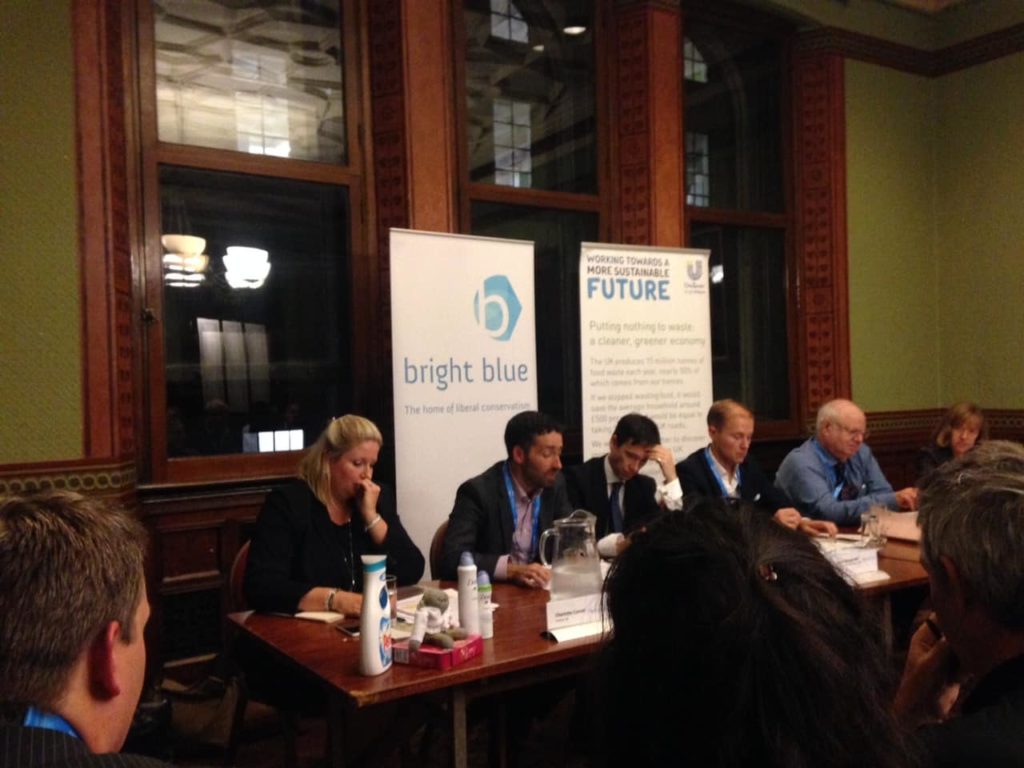Speaking during a fringe session at the Conservative Party Conference in Manchester on Sunday evening (October 4), the minister expressed his desire to see councils move towards one of ‘five or six’ types of collection system over the course of the next five to ten years.

He decried the ‘madness’ of the current situation which, he said, sees collection arrangements largely set at a local level by district, borough or unitary councils, and has seen a diverse set of collection arrangements develop across the country.
However, the minister did not go as far as to say which collection systems he is likely to favour, adding that work would need to be done to assess the benefits of existing collection schemes.
The minister was speaking at a Fringe session in Manchester’s Town Hall on Sunday evening, sponsored by Unilever, titled ‘Putting nothing to waste: a cleaner greener economy’.
Addressing delegates, he said: “We have about 360 different local authorities, doing different things with their waste. It is completely mad. It is mad in terms of us as householders, crossing those ‘Berlin Walls’ on London streets and trying to work out what is in our waste. It is mad from the point of view of the waste industry trying to work out how to get any economies of scale, its mad in terms of the councils themselves. It doesn’t save them any money having these different systems for waste.
“If we can have realistically, five or six different systems we end up in a position where it is better for the ratepayer, better for the councils and better for the environment.”
Harmonisation
As yet Defra has taken no firm action to assess the scope for aligning local authority collections, although a ‘Harmonisation and Consistency Working Group’ has been set up by the Department and is engaging with WRAP and local authorities on the issue.
Mr Stewart did concede that it is unlikely that Defra would legislate to force councils into any one type of collection scheme or to alter the powers that councils have to set collection policy.
[testimonial id = “284” align=”right”]
He also hinted that the Department would not be offering a pot of money to coerce councils into a change of collection regime, an approach tried unsuccessfully by former Communities Secretary Eric Pickles in his bid to see councils return to weekly collections of residual waste.
Mr Stewart has instead pointed towards a voluntary approach with input from the private sector as his preferred method of delivery.
Scotland
This approach could include the drafting of a recycling and waste framework for councils, similar to that being considered in Scotland. Mr Stewart told the conference that there would need to be ‘difficult discussions’ with local authorities to make the vision a reality.
“A lot of these people have signed contracts that are 20-25 years long, but over the period of the next ten years it is perfectly realistic, I believe, for 70% of councils to have signed up to three or four different types of recycling and the only thing that would be required is leadership, energy and a bit of a team,” the minister said, referring latterly to involvement from the private sector.
The success of any potential move towards a ‘standardised’ system for waste and recycling collections is likely to be questionable without any sort of legislative push for local authorities, and with many likely to be reluctant to commit to wholesale changes in services in light of budgetary constraints.
Another key hurdle is likely to be whether a consistent set of policies can be drawn up that would also enable councils to meet their requirements to separately collect recyclable material in line with the Waste Framework Directive. Defra has backed away from offering any formal guidance on what forms a legally compliant collection system following a judicial review on waste collections in 2012, and could put itself at risk of further legal challenge if it does so.











Subscribe for free